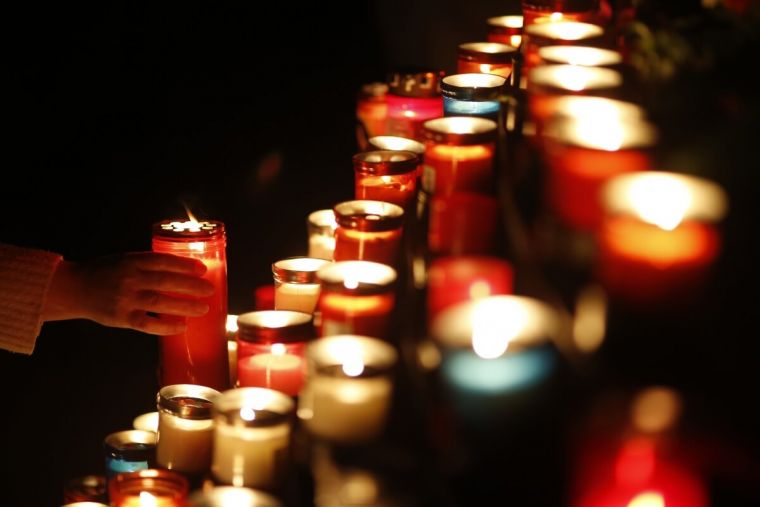Christians repent of their own sins as they agree to action on persecution

Matthew chapter 5 records Jesus's words to his followers: "Blessed are you when people insult you, persecute you and falsely say all kinds of evil against you because of me." (NIV)
The persecution of Christians has been a reality since Jesus walked the earth and experienced a cruel death at the hands of people who neither understood nor believed his message. But Christians have also, tragically, been the persecutors of other Christians – those who did not fall in line with their own particular interpretation - as well as other religious communities.
In an unprecedented move, Christians representing every stream of global Christianity came together in Albania this month to consult on the persecution of Christians, whilst also acknowledging their own sins in this respect.
The five-day conference was organised by the Global Christian Forum, together with the World Evangelical Alliance, the World Council of Churches, the Pentecostal World Fellowship, and the Catholic Church's Pontifical Council for Promoting Christian Unity.
It is the first time in modern history that representatives of these four strands have come together to address the issue - a reflection of the level of concern among Christian leaders as to the extent of persecution against the global church today.
The outcome was a historic joint statement committing the four organisations to working together more closely in support of the persecuted church, and extending a call to governments to protect religious freedom.
In a statement of support for the consultation, Pope Francis lamented the hardships being experienced by Christians because of their faith.
"I think with great sadness of the escalating discrimination and persecution against Christians in the Middle East, Africa and Asia and elsewhere throughout the world," he said.
"In various parts of the world, the witness to Christ, even to the shedding of blood, has become a shared experience of Catholics, Orthodox, Anglicans, Protestants, Evangelicals and Pentecostals."
In countries like North Korea and Iran, Christians live with the threat of arbitrary detentions, torture and even death, while in parts of the Middle East, ISIS has been on a murderous rampage that includes Christians among its victims and Christianity is close to being wiped out.
It is hard to know the exact number of Christians who are martyred or experience persecution each year because of their faith, but Rupert Shortt, author of 'Christianophobia: A Faith Under Attack' estimates the number to be around 200 million.
Earlier this year, the Pew research group rated Christians as the most harassed faith group in the world, being penalised or harassed for their faith in 102 countries in 2013, narrowly ahead of Muslims who suffered a similar fate in 99 countries, and Jews in 77 countries in the same year.
Whatever the exact numbers, the plight of Christians around the world has been enough to alarm more than Church leaders, with Prince Charles recently calling the situation for Christians in the Middle East "an indescribable tragedy".
The Church bodies that met in Albania earlier this month agree with this assessment and that is why they have made a commitment to collaboration in the area of persecution for the first time in modern history.
"Discrimination, persecution and martyrdom among Christians and people of other faiths in the contemporary world are growing due to a complex variety of factors in different realities and contexts," their joint statement reads.
"We acknowledge that solidarity among Christian churches is needed to strengthen Christian witness in the face of discrimination, persecution, and martyrdom.
"In the 21st century, we need to urgently strengthen the solidarity of all Christians, following up on what has been accomplished with insight and discernment from this consultation."
Explaining the sentiment behind the statement, the Secretary General of the World Evangelical Alliance, Bishop Efraim Tendero, explained that although Jesus made it clear Christians should expect persecution, this didn't mean they shouldn't challenge it.
"The good news that Jesus brought was a threat both to civil and religious powers of his day, so it should come as no surprise to us that persecution will likely follow for those who follow Jesus.
"And yet, we come together because the gospel also says 'No' to persecution," he said.
However, the statement offered more than a reflection on the persecution of Christians at the hands of non-believers, and included an admission of guilt on the part of Christians for sometimes persecuting each other.
"We repent of having at times persecuted each other and other religious communities in history, and ask forgiveness from each other and pray for new ways of following Christ together," the statement said.
Bishop Tendero said it was important to "heal memories" connected to the persecution of Christians by other Christians, and "to overcome prejudices against other Christian traditions and not to confuse things from the past with present realities".
With this in mind, the WEA said it would be supporting churches and pastors in training and dialogue with other Christian communities.
The importance of dialogue was touched on during the consultation by European Baptist leader, the Reverend Dr Tony Peck. He told those gathered that there was a need for greater listening and understanding on the part of the non-persecuted Church.
"We need to listen to what our leaders of suffering churches are actually telling us," he said, adding that Christians in Palestine had begged him: "Please stop talking about the Christian community as a beleaguered minority."
Read the consultation statement in full here











